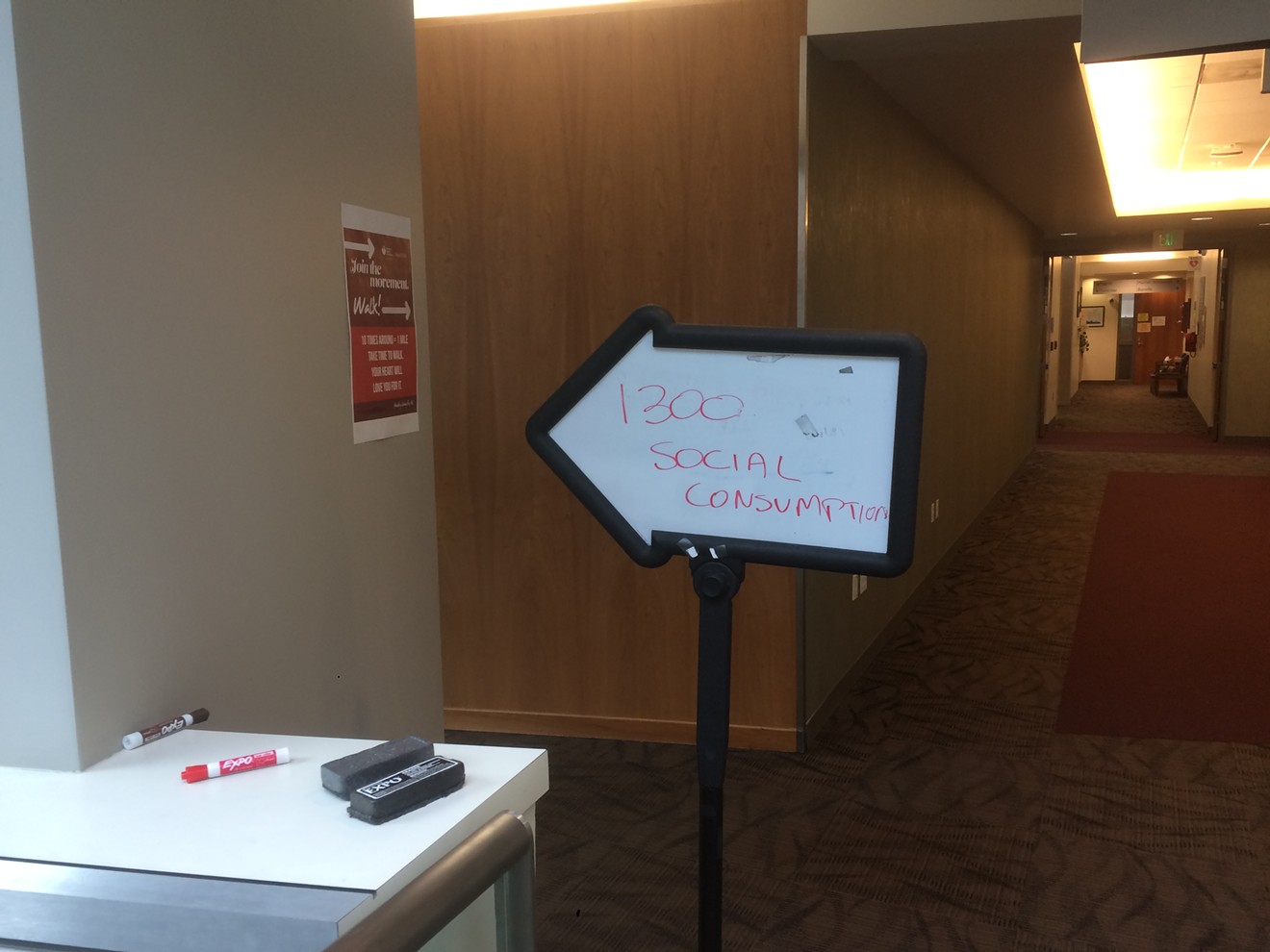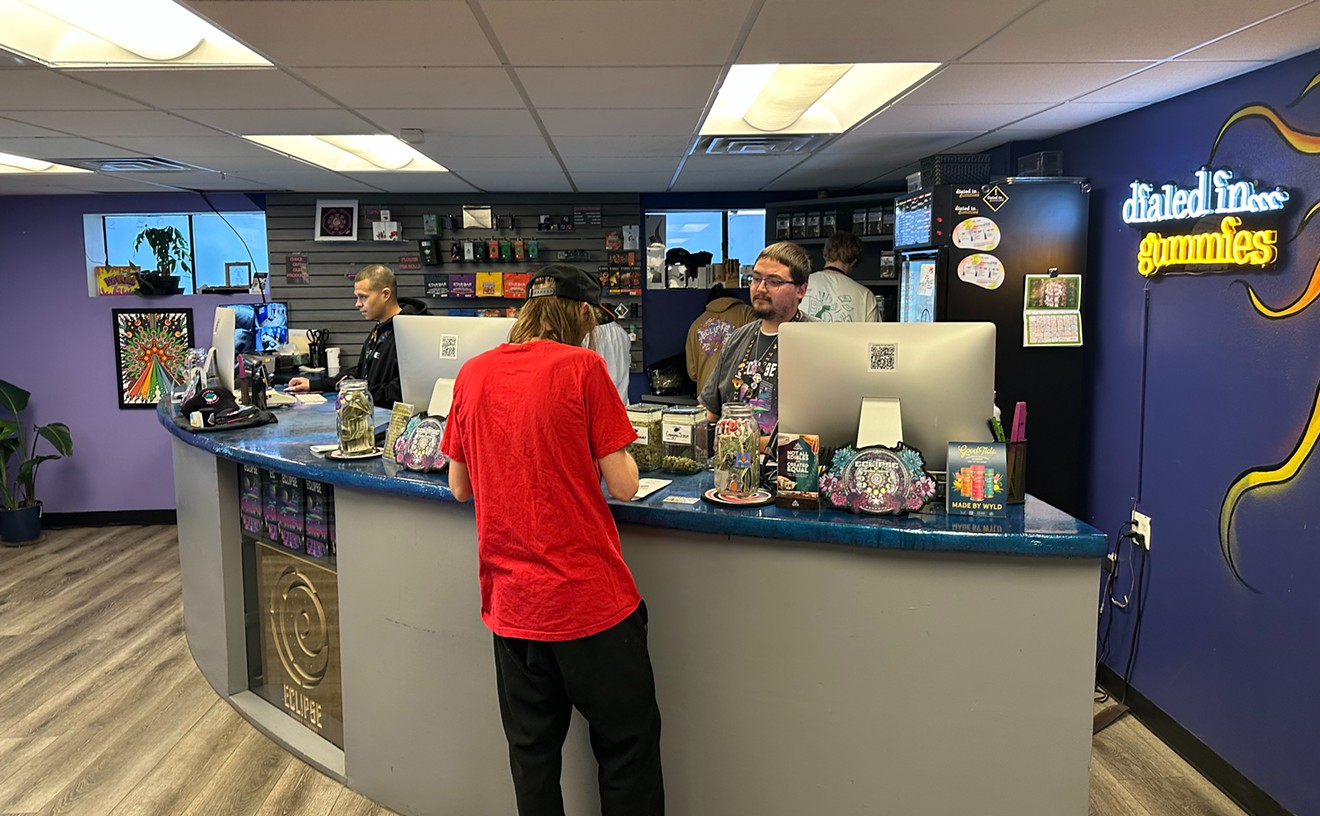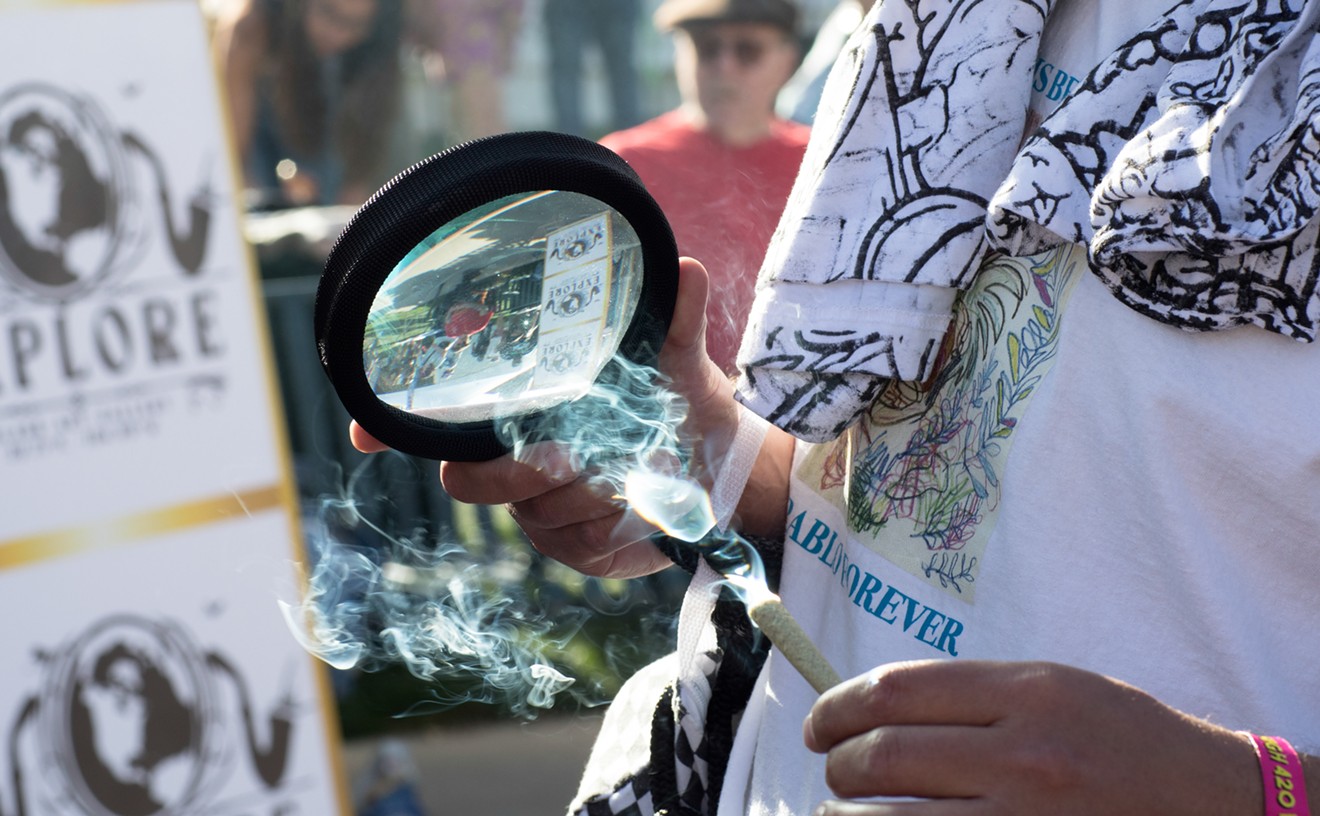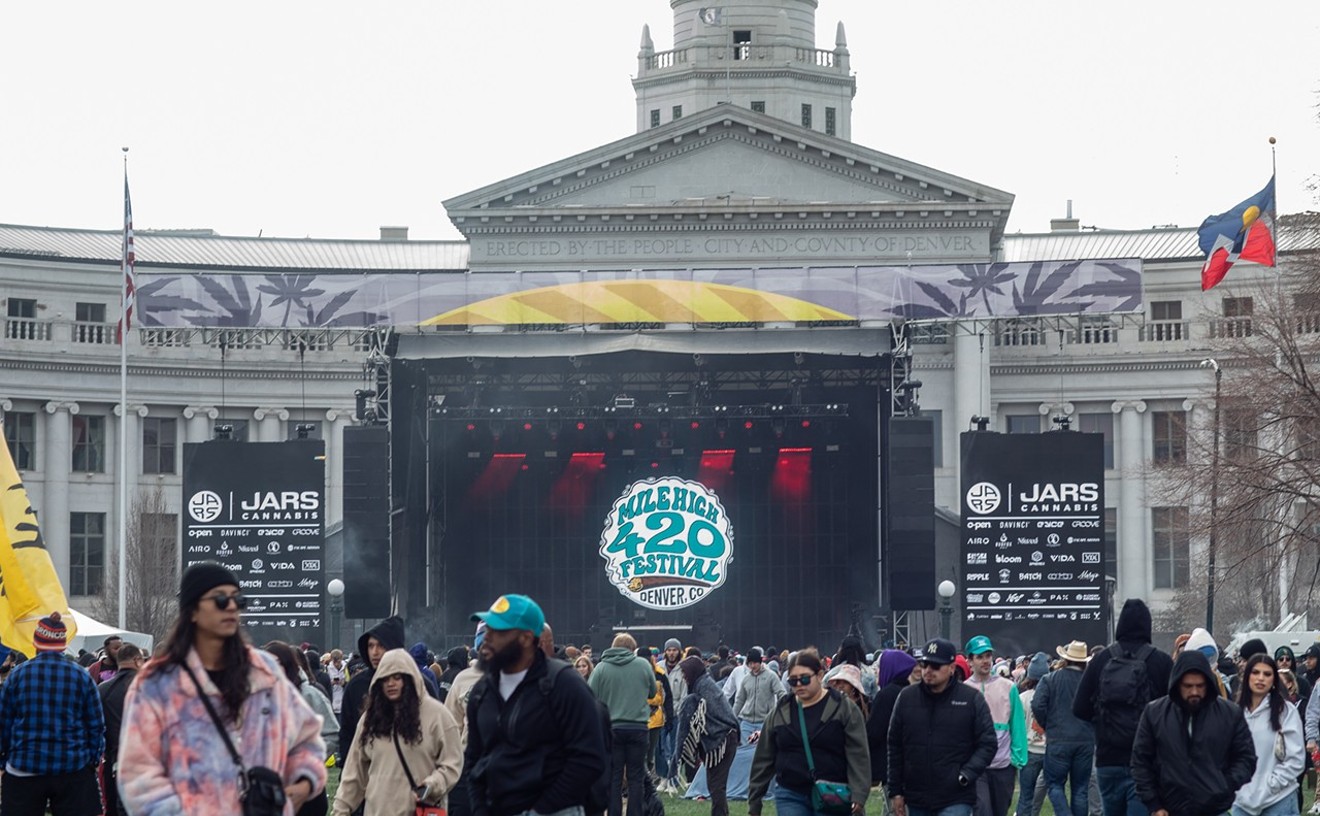More than a hundred people crammed into a hearing room in the Webb Building for nearly three hours on June 13 to give Denver officials a final round of feedback on the proposed social-consumption regulations to implement Initiative 300, which Denver voters approved last November. The initiative called for the city to create a Social Consumption Advisory Committee to create the rules; twenty members from across the community met six times to hash out the draft regulations.
But there's still disagreement over provisions in the proposal, and at the hearing, much of the discussion focused on mixing alcohol with marijuana, outdoor odors, and buffer zones between social-use businesses, residential areas and places frequented by children.
Under I-300, Denver businesses can apply for permits for private, adult-only areas designated for social marijuana consumption. The current draft regulations state that a permit will not be granted to an address within 1,000 feet of a school, child-care establishment, drug or treatment facility, or city park, pool or recreation center.
Dual use, or mixing marijuana and alcohol use at the same establishment, would be banned under the proposed regulations. Any business hoping to have a permit for both alcohol and social use would only be able to serve alcohol when the social-consumption area is closed. Permit-holders would also be required to have customers sign a waiver before entering the establishment, whether they intend to consume marijuana or not.
Residents and some neighborhood associations, notably the West Washington Park Neighborhood Association and Inter-Neighborhood Cooperation, argued for the 1,000-foot buffers between places permitted for social consumption and areas zoned for residential use, as well as schools, parks and places where children congregate. But business owners and others who supported I-300 say the proposed restrictions squeeze out a majority of applicants while pushing permits to the outskirts of town.
Emmett Reistroffer, I-300 campaign director and a member of the city's Social Consumption Advisory Committee, said the proposed distance requirements, among other barriers, freeze out most of the business owners who were originally on board for I-300. "The I-300 campaign is an extension of [the Amendment 64] campaign," he told Ashley Kilroy, who headed the city's marijuana policy office and is now director of the Denver Department of Excise and Licenses, calling it "far from what the voters approved."
Leslie Twarogowski, executive director of the Federal Boulevard Business Improvement District, agreed that the proposed rules are too restrictive; business owners in the area worry that they won't be able to secure social-use permits, and there will continue to be public marijuana use on the street.
In supporting the buffer zone, longtime West Washington Park resident Gertie Grant compared the smell of cannabis use to that of a dead skunk she came across in the mountains. "Please don't let Denver become more of a skunk city," she urged city officials.
Globeville Civic Partners president Nancy Grandys-Jones also said she supports the social-use regulations. Current marijuana dispensary and cultivation location requirements have already forced many marijuana businesses to north Denver neighborhoods, she noted, and more may have to move.
Owners of yoga studios and coffee shops, for example, argued that the proposed rules will prevent them from applying for a permit, and said they'd have to relocate their businesses in order to apply for a social-consumption permit, and then still pay $2,000 in application fees.
But Denver attorney and I-300 supporter Christian Sederberg called the buffer zones "setback requirements" and urged the city to consider their effects down the road. "We can't have a pilot program that errs to the side of permissive, or it won't be a pilot program at all," he said.
In addition to neighborhood groups, SMART Colorado, Denver NORML, the Colorado Restaurant Association and Protect Denver's Atmosphere – Vote No on 300 all voiced support for the proposed regulations as they stand. "We should be really positive right now," said Denver NORML Executive Director Jordan Person. "Politics are incremental."
The city plans to finalize the regulations by the end of the month; the pilot program would go to 2020. The Denver Department of Excise and Licenses has already started the application process, but no permits will be issued until sometime in July, after the rules are adopted.
[
{
"name": "Air - MediumRectangle - Inline Content - Mobile Display Size",
"component": "12017618",
"insertPoint": "2",
"requiredCountToDisplay": "2"
},{
"name": "Editor Picks",
"component": "17242653",
"insertPoint": "4",
"requiredCountToDisplay": "1"
},{
"name": "Inline Links",
"component": "18838239",
"insertPoint": "8th",
"startingPoint": 8,
"requiredCountToDisplay": "7",
"maxInsertions": 25
},{
"name": "Air - MediumRectangle - Combo - Inline Content",
"component": "17261320",
"insertPoint": "8th",
"startingPoint": 8,
"requiredCountToDisplay": "7",
"maxInsertions": 25
},{
"name": "Inline Links",
"component": "18838239",
"insertPoint": "8th",
"startingPoint": 12,
"requiredCountToDisplay": "11",
"maxInsertions": 25
},{
"name": "Air - Leaderboard Tower - Combo - Inline Content",
"component": "17261321",
"insertPoint": "8th",
"startingPoint": 12,
"requiredCountToDisplay": "11",
"maxInsertions": 25
}
]













